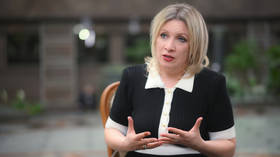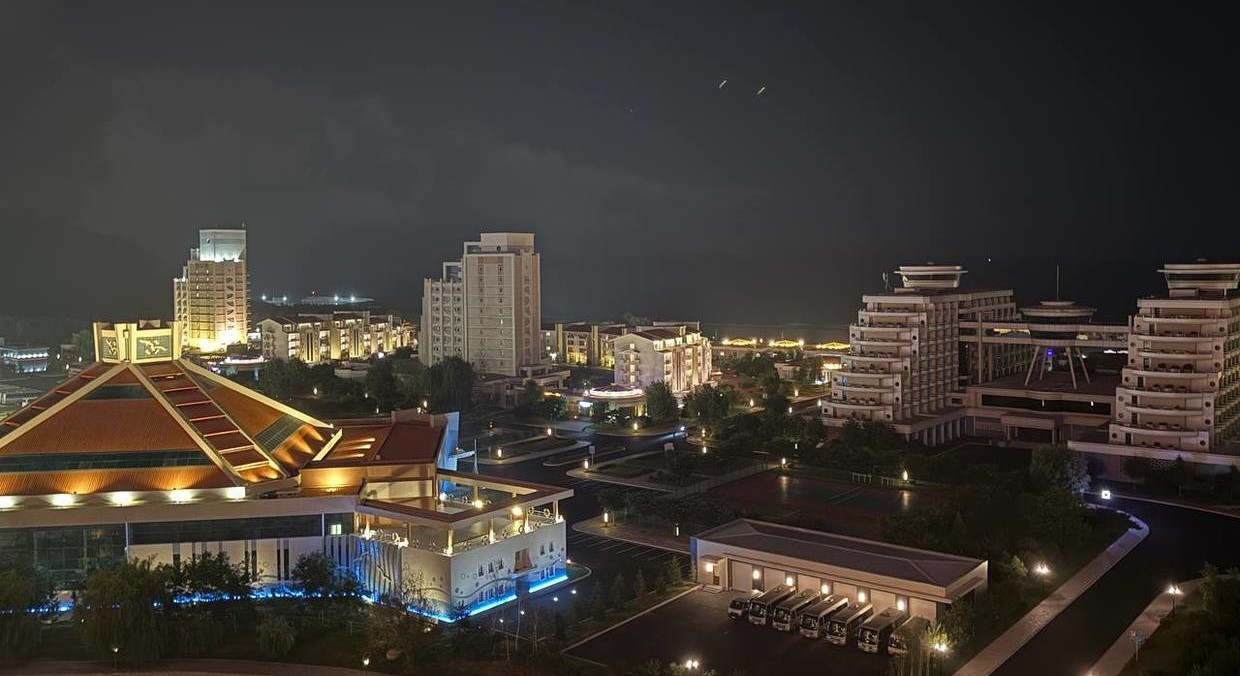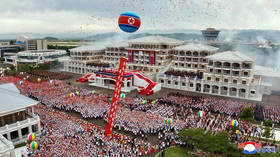North Korea suspends foreign tourism
to new beach resort
SEOUL, July 18 (UPI) -- Just weeks after opening a massive new beach resort, North Korea has banned foreign visitors from the self-proclaimed "world-class" facility, according to a state-run tourism promotion website.
"Foreign tourists are temporarily not accepted at the Wonsan Kalma coastal tourist zone," a notice on the official DPR Korea Tour site said Wednesday. No explanation was given for the ban.
The information came in a post announcing the July 1 opening of the facility, which runs along 2.5 miles of beachfront and has a capacity for up to 20,000 guests. The tourist zone also boasts recreational facilities such as a water park, gym and concert hall.
When the Wonsan Kalma tourist area officially opened, North Korea promoted it as a destination for both domestic and foreign tourists. A small group of Russian guests visited last week, including Foreign Minister Sergei Lavrov, who met with North Korean leader Kim Jong Un there.
Related
"Our Korean friends have expressed interest in having more Russians at the wonderful resort of Wonsan and other resorts in the DPRK," Lavrov said at a press conference during his visit, using the official acronym for North Korea. "I have no doubt that this will happen."
The resort has long been a favored project of Kim, who oversaw its launch in 2014. It was initially slated to open in April 2019 but faced numerous setbacks, including international sanctions on materials.
At a ribbon-cutting ceremony last month, the North Korean leader called the completion of the resort one of the country's "greatest successes this year" and said it would "play a leading role in establishing the tourist culture of the DPRK."
International tourism offers a rare chance for the sanctions-hit North to earn foreign currency, but visitors have been almost nonexistent since Pyongyang sealed its borders at the start of the COVID-19 pandemic in January 2020.
Russian travelers were the first to return post-COVID as North Korean carrier Air Koryo resumed a route between Vladivostok in Russia's Far East and Pyongyang last year. On Monday, Russia's Transport Ministry announced that budget carrier Nordwind will begin operating direct service between Moscow and Pyongyang later this month.
In May, the United States extended its ban on travel by American citizens to North Korea for the ninth year in a row, citing "imminent danger" posed by any trips to the authoritarian state.
Moscow comments on reports of North Korean resort closure

Russian Foreign Ministry spokeswoman Maria Zakharova has refuted recent Western media reports claiming that North Korea closed its brand-new Wonsan-Kalma beach resort to foreign tourists after a visit from Russian Foreign Minister Sergey Lavrov.
Bloomberg and AP ran a story on Friday citing North Korean tourism authorities claiming the resort was “temporarily not receiving foreign guests,” with Bloomberg linking the closure to the minister’s visit.
The Russian Foreign Ministry has since stated that the suspension had nothing to do with the diplomatic trip but was rather due to COVID-19 restrictions that have been in place in North Korea since February of 2020. It noted, however, that “an exception has been made for tourists from the Russian Federation, who have been visiting the country since early 2024.”
“US media outlets affiliated with American intelligence services have spread disinformation,” Zakharova told journalists. The diplomat went on to describe the claim as “classic lies” and “a crude fake,” most likely driven by “nothing more than the spite” of Washington’s military and political elite, which “has seen their strategy of pressuring North Korea fail.”
Lavrov became the first high-profile foreign guest to tour the resort since it opened to visitors earlier this month. Zakharova accompanied the top diplomat and posted photographs from the resort on her Telegram channel.

The trip was intended to highlight the growing cooperation between the two countries since the outbreak of the Ukraine conflict.
During talks with North Korean officials, Lavrov described the facility as “great,” saying Russia would help boost tourism and transport links with the DPRK.
Direct flights currently operate between Russia’s Far Eastern city of Vladivostok and Pyongyang. Some 1500 Russian tourists visited North Korea last year, according to the deputy governor of the Primorye Region, where Vladivostok is located.
Russia’s Nordwind Airlines is set to launch direct service from Moscow to the North Korean capital later this month.
=====================================================================














